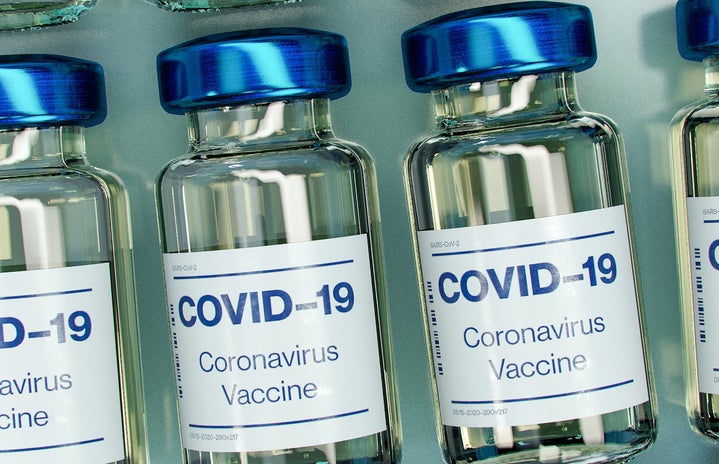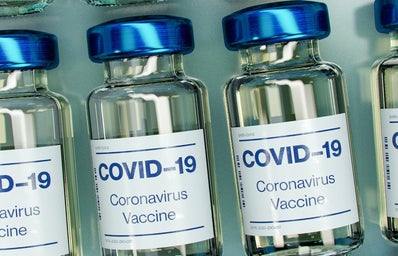The vaccination of Covid-19 already started in many countries, the first that applied doses was Russia and the United Kingdom, still in early December 2020. But, some countries have not started administering doses of immunizers until now, almost all are from Africa. According to WHO (World Health Organization), some of them are: Democratic Republic of the Congo, Zambia, Madagascar, Yemen, and the United Republic of Tanzania. On other continents, just a few of them are in this situation like Turkmenistan and Cuba.
By the end of 2019, in the Chinese city Wuhan, Coronavirus was detected and started to spread around the world. So, in 2020, all continents already had cases of Covid-19, which has come to be considered a pandemic. Vaccination became necessary for everyone then started a race for the creation of immunizers. The total number of deaths caused by the pandemic is more than two million. The problem is that this is an unequal dispute, especially for the poorest countries.

For Deganello, is necessary a better purchasing power and organization capacity by the governments. “Unfortunately, less than 2% of the global administered vaccines are in the African continent. This is due to the government’s lower purchasing power and a more precarious health system if we compare it to other countries. Then, it lacks people to plan this purchase and to do the necessary logistics for vaccination. Covax Facility is a mechanism from WHO (World Health Organization) that is trying to reduce the uneven, through vaccines’ deliveries to Africa and other undeveloped countries, and including Brazil”, affirms. “I believe after wealthy countries vaccinate most of the population, Africa will be able to accelerate it“, adds.

- Publicities made by pharmaceutical companies
-
The publicities made by pharmaceutical companies are important to be aware of. The first country which received the vaccine from Pfizer/BioNTech was Rwanda. Ugur Sahin, co-founder of BioNtech announced after it happened: “Our goal is to make vaccines accessible worldwide and today’s delivery to Rwanda is a great step forward. We will continue to work with COVAX to make Covid-19 vaccines available in many more low and lower-middle-income countries and help protect vulnerable people worldwide”.
About the pharmaceutical companies’ advertisements, like the announcement of Ugur Sahin, influence new agreements, mainly in Africa — a continent where there are just a few people vaccinated, the Public Policy Analyst believes that “Rwanda received these vaccines from the Covax Facility mechanism. For these companies that are participating, like Rwanda that received from Pfizer and AstraZeneca vaccines, it’s always positive publicity due to their help in humanitarian issues. Of course that for these companies it makes a good image and, hence, public opinion gets better because there are so many critics about vaccine price and the logistic of it, for example, Pfizer’s vaccine that needs to be stored by -70°C, which is the same as -94°F. So, for them, being part of global initiatives is good for them to get new agreements around the world”.
- Armed conflicts in Congo
-
When it comes to the purchase of vaccines for COVID-19, Republic Democratic of Congo, a country where there are militia clashes, Guilherme said that “At the beginning of March, the country received the Covax Facility. However, it’s just a few doses if compared with the number of the population. No doubt, the armed conflicts have been a hindrance to the sanitary issues of the country, because it’s one of the main nations that had the Ebola crisis, and the humanitarian missions that were sent to Congo faced resistance for their own citizens. I hope vaccination happens without big problems, even with these conflicts, but it’s a region that has related obstacles with armed conflicts”.
- Turkmenistan: the dictatorial country
-
Turkmenistan has been an Asian country in which the dictatorial government doesn’t believe in the virus. This nation hasn’t started the vaccination and doesn’t intend to. The government of Turkmenistan has prohibited the use of the word “Coronavirus” and has not notified the number of cases and deaths in the country.
“No doubt that Turkmenistan’s case, like other dictatorial countries, as North Korea and the United Republic of Tanzania, exemplify how is the management of the crisis in these countries, with negativism and trying to pass an image that everything is fine. Nevertheless, it’s possible to notice how these countries tend to have serious problems with health care. So, these countries were already very restricted in tourism and economy”, affirms Deganello. Besides his perspective is if Turkmenistan doesn’t vaccinate the population, the “tendency is the world is seeing this leading, so sanctions will probably be made and business and tourism decrease, due to this issue of denying the Coronavirus”.
- South African Variant and the Oxford-Astrazeneca vaccine
-
It was discovered a new variant of Covid-19 in South Africa. This made the vaccine Oxford-Astrazeneca be suspended in many countries because it is not efficient against this variant. Other problems related to this vaccine, like clots. However, after a review, the European Union said the immunizer was safe and had no evidence of serious side effects.
Even though for the internationalist Deganello these questions could affect other countries, besides South Africa. “Studies have already shown that, unfortunately, this vaccine’s effectiveness against the South African variant is lower and the serious effects, that happened mainly in Europe, are already impairing Astrazeneca’s vaccine image. Some European countries are already deciding that the population must not use this vaccine or just a specific group of them. So, this vaccine is already suffering a lot with it, despite some studies showing that it’s still being effective. And although the population in many countries don’t want this vaccine, some governments are recommending it”, says.
In conclusion, Deganello says that the best option is to wait for the next months. “We need to wait the next months to know if the vaccine will be able to make changes in its composition so that it becomes more effective and more credible for the public again”. Thus, we can say that African countries have been the most who haven’t started the vaccination, due to their economic issue. However, some countries are in this situation for other occasions, like the negativism from the government.
———————————————
The article above was edited by Camila Nascimento.
Liked this type of content? Check Her Campus Casper Libero’s home page for more!


